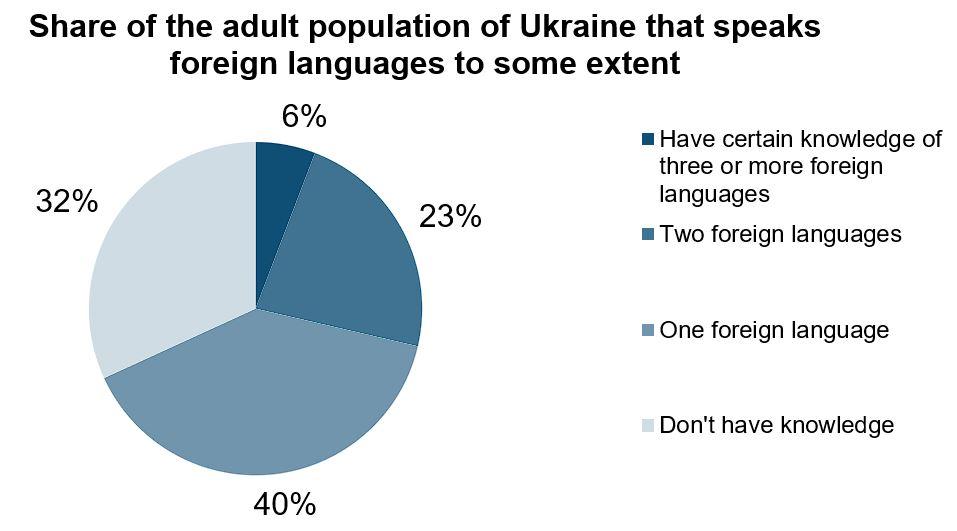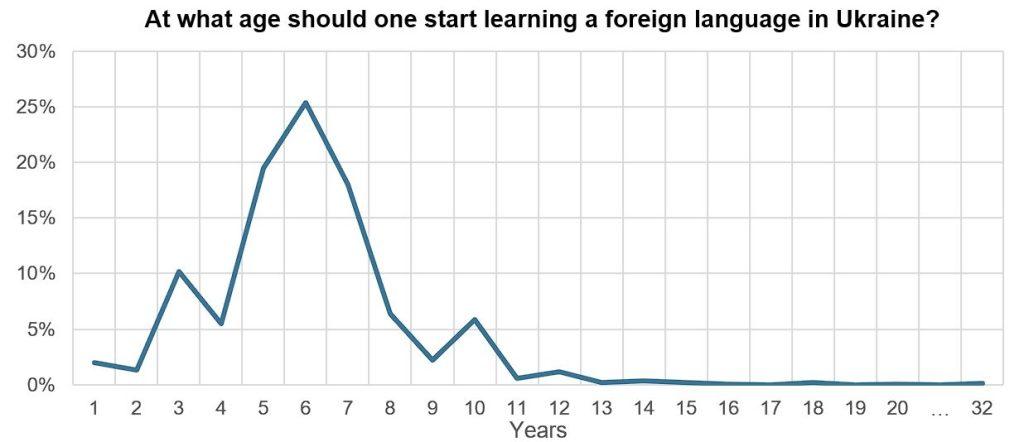During December 2022 - January 2023, KIIS conducted an all-Ukrainian sociological research commissioned by the USAID project "Transformation of Communications", implemented in Ukraine by Chemonics International. The research was conducted at the request of the Ministry of Digital Transformation of Ukraine with funds generously provided by American taxpayers through the USAID Agency for International Development.
The purpose of the research was to assess the level of foreign language proficiency among the adult population of Ukraine (in particular, English, Polish, Turkish, Hungarian, Spanish, French, German), as well as to study the incentives and barriers to learning foreign languages.
Under normal circumstances, the statistical error of such a sample (with a probability of 0.95 and without taking into account the design effect and peculiarities of the applied research method) did not exceed 2.2%. At the same time, under conditions of war, additional systematic sample deviations may occur due to the consequences of Russian aggression, in particular, the forced displacement of millions of Ukrainian citizens, lack of reliable statistics, etc. However, the analysis shows that internally displaced persons continue to use mobile communications and the Internet, therefore the obtained results still retain high representativeness and allow a fairly reliable analysis of the social state and opinions of the population living in the controlled territory of Ukraine.
What is the assessment of the level of foreign language proficiency?
The majority of Ukrainians, namely 68%, have some knowledge of at least one foreign language, although this knowledge is often not deep: in particular, 51% of Ukrainians indicated that they have some knowledge of the English language, but a more detailed analysis shows that only 23% can read, write and communicate in this language at everyday and even professional levels. In general, almost a third of adult residents of Ukraine - 31.8% - do not speak foreign languages at any level. It should be noted that in this context the Russian language was not taken into account, only English, Polish, Turkish, Hungarian, Spanish, French and German languages.

Instead, more than half (56%) have a desire to increase their level of knowledge of a foreign language, but 61% claim that they do not need to know a foreign language for professional activities.
In general, Ukrainians can be divided into four conditional categories regarding learning a foreign language: 1 – have a desire and a need (28%); 2 – have only desire (28%); 3 - have no desire, but there is a need (2%) and 4 - have neither a desire nor a need (42%).
Knowledge of a foreign language is higher among younger, more educated and wealthier people. A relatively greater spread of knowledge of foreign languages is observed in cities with a population of 500,000 or more (77%) and the capital - 84%.
The majority of respondents share the opinion that it is necessary to learn foreign languages at a young age, in particular, the majority (63%) believe that it is necessary to start learning a foreign language at the age of 5-7.

The full report can be found here.




















